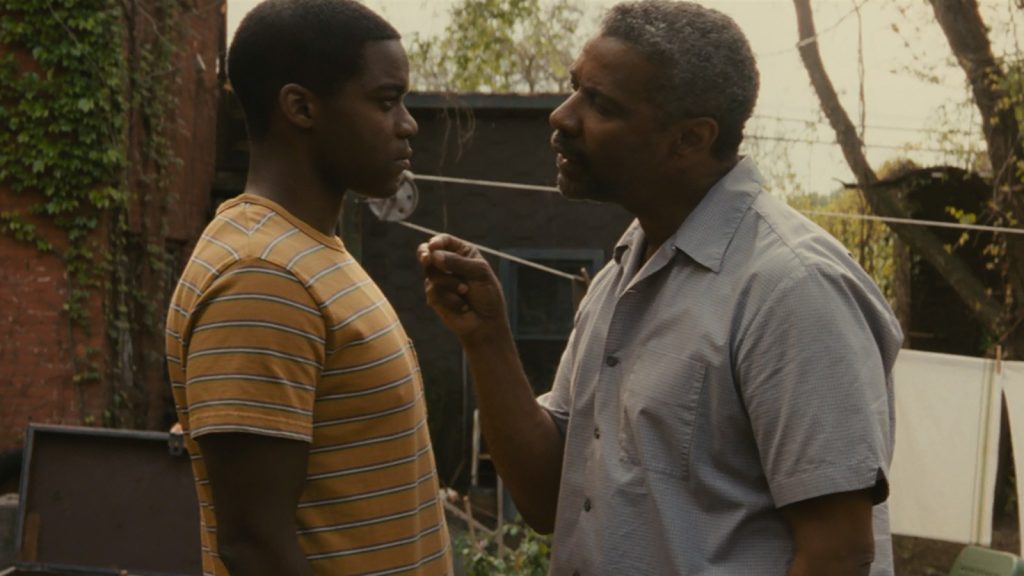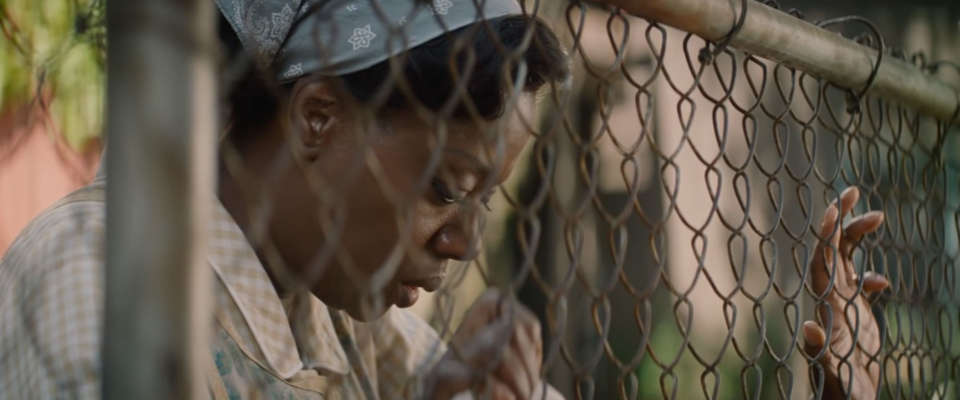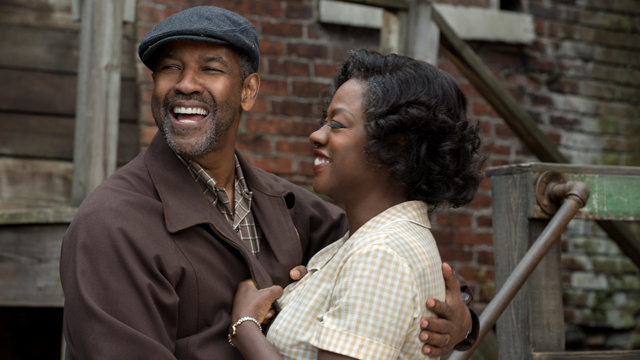The Academy Awards air live this Sunday, and nominated for best film, Best Actor and Best Supporting Actress, and Best Adapted Screenplay is the Denzel Washington-directed “Fences.”
Based on master playwright August Wilson’s most famous play, the sixth in his ‘Pittsburgh Cycle’ a series of 10 plays that explore the African-American experience in each decade of the 20th century, Washington also stars as the film’s protagonist Troy Maxson, a boisterous yet defeated man living in late 1950’s Pittsburgh with his wife Rose and son Cory. A garbage man by profession, but wanting better, Maxson is still bitter at never being able to play baseball in the major leagues, despite having superior stats and skills to white players, like so many in the Negro Leagues. Rose, played by Viola Davis and nominated for Best Supporting Actress (who has already won multiple awards for her portrayal) says he was too old, but he knows otherwise. Troy’s bitterness, like so many Black men passed over and living full-frontal with white supremacy, and unable to control their own fate, has him deeply emotionally scarred. And so, Troy takes out his frustrations on his family. Not physically, but he is a forced to be reckoned with, and not crossed.
As the film unfolds, Troy destroys Cory’s chance at a college football scholarship, believing whites won’t let him play. He doesn’t feel Cory should build up hope, then end up just like his dad – always pining for that glory. Wanting to feel something out of this world that gobbled him up and spit him out, Troy is unfaithful to his dutiful Rose, resulting in even more trouble to a household already struggling to survive, and now further weighed down by disappointment, damaged black manhood and womanhood, and no healthy way to repair it all.

Though the cinematic version of ”Fences,” especially at the beginning, remains as dialogue heavy as Wilson’s original theatre production, this adaptation is breathtaking due to the powerful story, the extremely amusing, heartfelt, and affecting script, and the acting. ”Fences” is an actor’s dream – and Washington and company do not disappoint. And the Academy, especially since this film also has so much star power, found it hard to deny it multiple nominations.
Because of all this, ”Fences” deserves to win the Academy Award for Best Picture.
Yes, in my recent editorial I said we should not hold the Oscars as the arbiter of taste or glory, and I maintain that, but this film is nominated so attention should still be paid to it. So, let’s break it down a bit more by the film’s acting and writing excellence.
Theater producer and director Kenny Leon, who brought the 2010 stage version to fruition, says in an NPR interview around that time, “there is not a character, definitely not in American theater, that is on the scale of a Troy Maxson… Troy Maxson is Othello, Macbeth, Willy Loman combined.” A perfect summation, it’s no surprise that James Earl Jones originated the role on Broadway (you can see a clip HERE) and that only someone of Denzel’s calibre could revive it.
Having seen the stage version, the cast, mostly intact for the screen adaptation, are veterans of stage and screen who make “Fences” even grander on film. Aside from Denzel, who is still pretty Denzel-full as Troy, but also fully inhabits the character and all his angry, uproarious, jerk-like qualities, it is naturally his co-star Viola Davis who shines. Doing more with a bent back than some actors can do with ten minutes of exposition, Davis’ pain is felt in every dismissive comment Troy lends her, in every retort she gives to control his conduct in front of others, and in every stare she gives him to make it obvious that this is the man she’s chosen, and that’s just how it’s gonna be. The trailer shows character Rose’s most famous scene, a teary and snot filled one by Davis – which remains brave to lay out on screen – but it’s at another breaking point, where she’s so soft-spoken and most powerful. That scene, as I right this, brings up emotions in me, but I imagine for many women in the audience, must be vigorously freeing and heartbreaking.

Mykelti Williamson, still best known as Bubba from “Forrest Gump,” here plays Gabriel, little brother to Troy who is emotionally disturbed due the plate in his head from fighting in World War II. As the literary “fool” that reveals truths through incoherency, Williamson does something that shows how difficult acting is. Russell Hornsby, playing the musician Lyons, Troy’s older son by another woman, does similar work. Both of them, totally underrated actors, create an intimacy with the viewer on screen that I feel is seldom created on stage. That intimacy, also coming from good direction, allows actors to play to the camera in a stronger way than stage can: it’s in your face on the big screen, you cannot escape it, and so the pain and confusion by how this man who you’re trying to love, but it’s not reciprocated, is felt even stronger to the rest of us. It’s in the pages for sure, but the delivery makes it more real.
Though Jovan Adepo as Cory is the least seasoned actor in the cast, he deftly fights to reverse the societal invisibility that all the other characters experience with his defiance. In a pivotal scene he remarks, from the original text, how he always feels Troy’s shadowy presence over him: “It weighed on you and sunk into your flesh….digging in your flesh. Trying to crawl in. Trying to live through you. Everywhere I looked, Troy Maxson was staring back at me…hiding under the bed…in the closet. I’m just saying I’ve got to find a way to get rid of that shadow, Mama.”
Ultimately, while “Fences” fits the greater society’s nomenclature as a “Black film,” which it proudly is, like any piece of art, regardless of its origins, it’s ultimately for everyone. Viola Davis remarks in a December 2016 NPR interview how, of all August Wilson’s work, “I think that this play is probably the most accessible. I think that when people come to see this they will relate to it in a way that it’s [not just] an African-American experience — it’s a story about a family and it’s a story about a flawed man who is at the center of this family who doesn’t understand the extent to which he is destroying it. And I think that that really is at the heart of who we are as people and what we are as family.”
Related Links:
August Wilson’s Pittsburgh Cycle of 10 Plays
Complete List of Academy Awards nominations
Original Broadway cast of “Fences” (1987-88)

